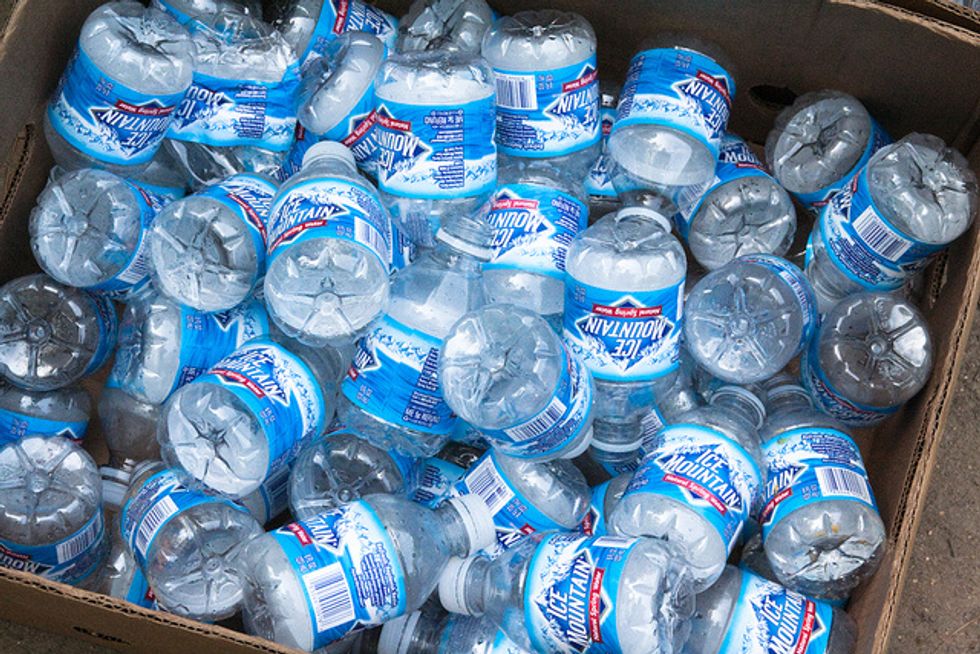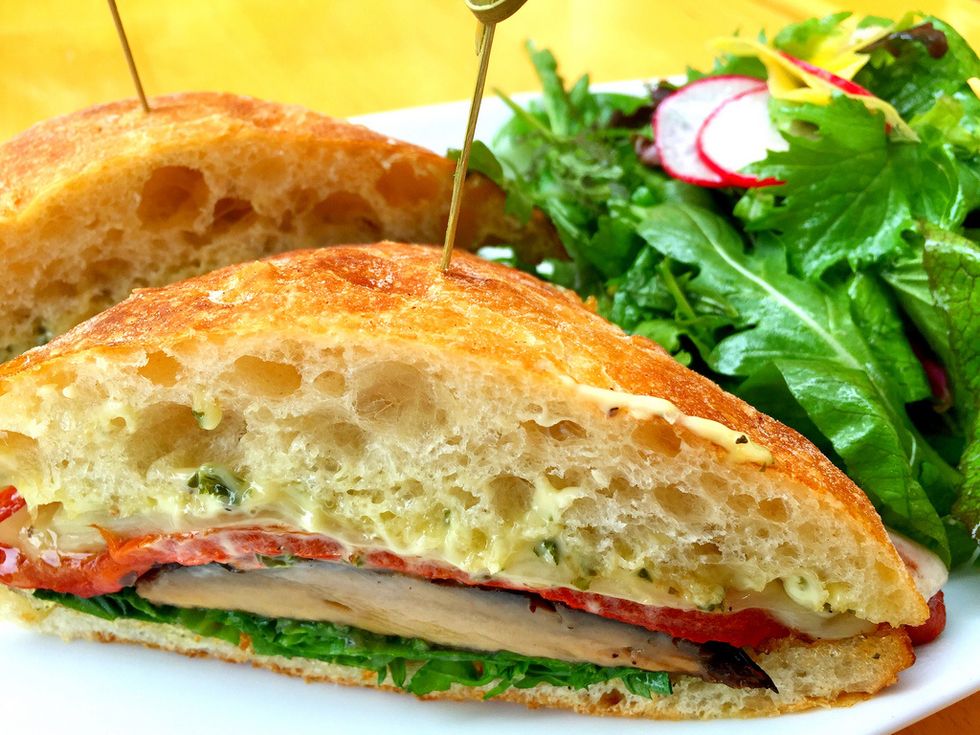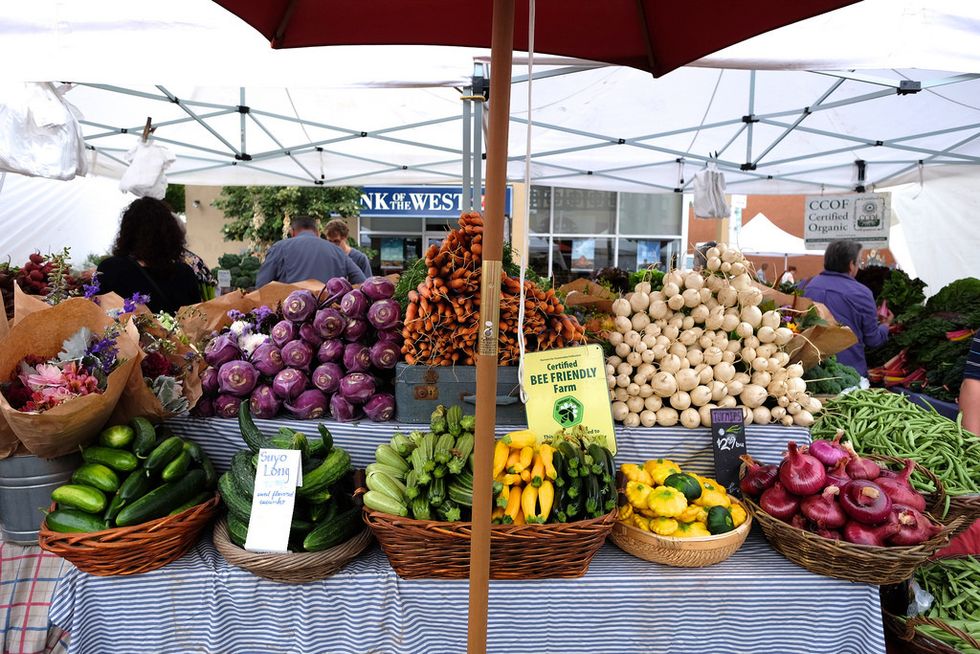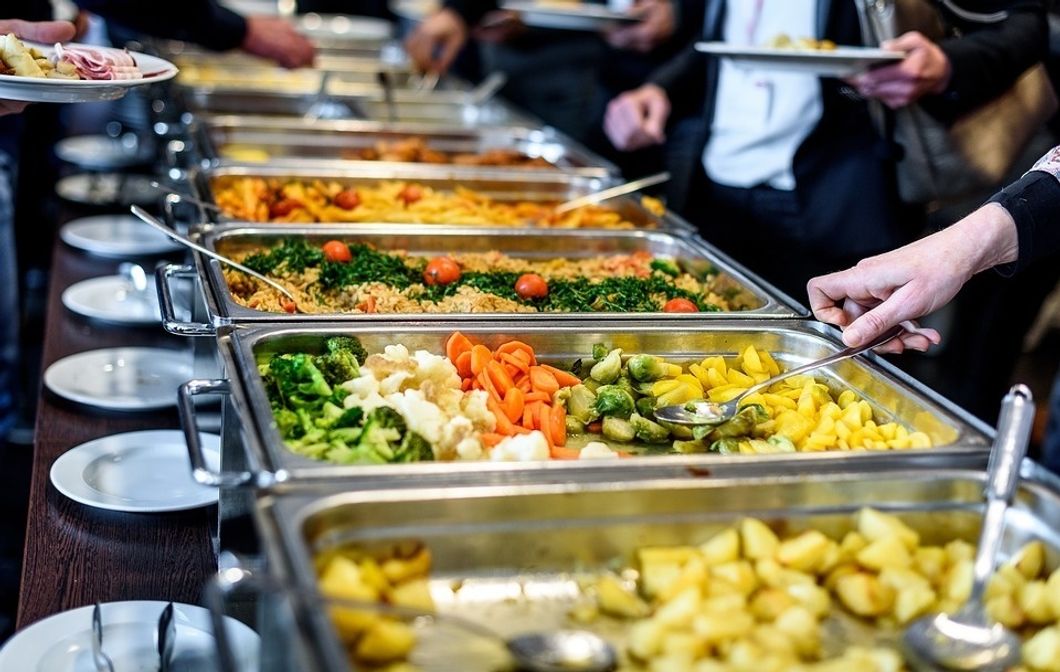Graduation Parties, block parties, family gatherings and other special events are always very entertaining and enjoyable. At the same time, these events can have a decent cost on the environment. Consider all of those pieces of uneaten food, containers, disposable plates, cups, and utensils bagged up and tossed in a dumpster or at the curb. Reducing waste also makes economic sense because it saves you money by not having to buy excess items that you don't need. Parties and other special events can be made more sustainable without losing any value or enjoyment.
Here are 10 ways to make your next event more sustainable.
1. Have guests write their name on their cup
At most events, guests will want more than one cup of juice or other beverage, especially if there is a meal involved. Sometimes, it can be difficult to tell whose cup is whose, which is why people change cups after each drink. Writing names on cups using a Sharpie or permanent marker will make them easier to differentiate. That way, everyone uses one cup for the whole event, as opposed to multiple cups. People should also rinse their cup when changing drinks to avoid unpleasant mixtures and empty them when setting them aside to prevent contamination.
2. Swap the 16-ounce bottles for 8-ounce ones (For events that don't involve a sit down meal)

https://www.flickr.com/photos/stevendepolo/4626047848
Full sized 16-ounce bottles are common at any formal event, meeting, short gathering or dance. But do people finish those bottles? The answer is usually no. Most people don't want to have to carry around a full bottle until they're finished. From my own observations, most 16-ounce bottles have between 40 and 80% of the water remaining when they are disposed of. On the other hand, 8-ounce bottles will most likely be consumed in 1-2 gulps and are easier to carry individually. Bottles with a lot of liquid can leak and make it harder to empty the waste receptacle. Recycling companies also require that containers are empty to reduce unnecessary weight and avoid contaminating paper products. Having extra unopened 8-ounce bottles means that you can use or drink them later, as opposed to dumping out 16-ounce bottles that are half-finished.
3. Buy or order 15-20% less than the recommended size
Serving sizes are often estimates of how much people will eat. People's appetites vary greatly depending on their age, weight, height and what they've eaten prior. It's also more likely for people to eat less than a recommended serving size of an item at an event out of respect for the other attendees. Having tons of leftovers is also not preferable because it means you'll end of throwing it in the trash or spending the next week trying to gobble them up. On the other hand, it doesn't hurt to have extra non-perishable snacks like granola bars and chips on hand just in case anyone is still hungry.
4. Cut food into smaller portions

Not everyone will eat the food you are serving. People don't always know how much to eat until they are full. Smaller potions give people the opportunity to try and come back for more later if they like it or if they are still hungry. Once some has taken a bite out of a piece of food, it can no longer be eaten by anyone else if that person chooses not to finish it.
5. Survey attendees on food selection
Offering food that basically no one wants to eat is the biggest waste of time and money. Asking attendees to complete a survey on google form or some other online survey platform is a simple and efficient way make sure that you are ordering or making what the guests want. And it can greatly reduce the number of leftovers and wasted food. Surveys are usually best for large events that involve a buffet style meal.
6. Offer more plant-based foods
A growing number of people are becoming vegetarians and vegans for health and animal welfare reasons. The carbon footprint of producing meat in factory farms (which is how most meat is today produced) is greater than the total carbon footprint of the entire transportation sector. For every kg of beef produced, 27 kg of CO2 is emitted (the equivalent of driving 63 miles) and 6.9kg (equivalent to driving 16 miles) of CO2 emitted for every pound of chicken produced. Plant-based foods also tend to be lower in saturated fat and cholesterol, which makes them healthier.
7. Buy local ingredients whenever possible

If you are making your own food for a special occasion, then try to seek out some fruits and vegetables from local farms or farmer's markets (if it's the right season). Locally grown foods generally use fewer pesticides and don't use preservatives. There are fewer carbon emissions since there is no need to transport products over long distances.
8. Rent or borrow tables, chairs, and other supplies
It's not always feasible to buy extra tables, chairs, and other durable party supplies because it will take up extra space in your storage room. If you don't have large events frequently, it isn't very cost effective to buy excess tables and chairs.
9. Buy cups, plates, and napkins made with recycled content
Recycling conserves natural resources, but materials can't be recycled if there isn't demand for that material. Products that use recycled content close the loop in recycling by reusing the materials put out for recycling. Next time you go shopping for disposable cups, plates, and napkins, look for ones that say, "contains recycled content" since they took less energy and fewer natural resources to produce.
10. Use boxes to collect recyclables
If you don't have enough recycling bins, use cardboard boxes to collect empty bottles, cans, and plastic cups (check with hauler on plastic cups). Make sure that each recycling bin is clearly labeled with a sign that tells guests what can be recycled. Avoid using plastic bags to collect recyclables since most waste haulers require materials to be loose in the collection container and plastic bags are also not recyclable. When you are done with the boxes, break them down and toss them in your recycling cart, barrel, or dumpster. In the food serving and preparation process, you can also recycle clear plastic clamshells/boxes (empty and crumb free), steel food/sauce cans (give them a quick rinse to remove residue), the top half of pizza boxes (if there aren't grease spots), and disposable aluminum trays (quick rinse to remove food residue and crumple up). Other items such as plates, foam items, paper cups, utensils, food-soiled containers, and napkins must be placed in the trash.
As you can see, celebrations and other special occasions can be made more eco-conscious without any hassle. While some of the tips listed above are not feasible for all events, you will likely find at least two or three that really fit well with what you are doing. Together we can all adapt our habits, mindsets, and perspectives to make the planet a more beautiful place for generations to come.























